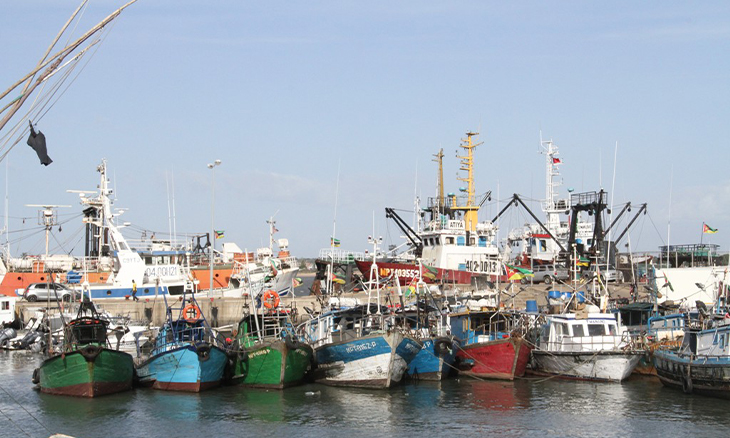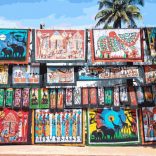Mozambique: Chapo promises to solve outstanding wage problems
Mozambique: Fisheries production reaches 71% of planned target

Image: O País
The fishing sector has already achieved 71% of planned production for this year, with 372,286 tons of fish from January to October, around 6% more than in the same period in 2023.
According to the Minister of the Sea, Inland Waters and Fisheries, Lídia Cardoso, the artisanal fisheries sector was one of the largest producers, with 95% of what has been achieved so far. According to the government, 420,398 people practise this type of fishing throughout the country.
However, illegal fishing is a major problem in the sector. According to Minister Cardoso, the Mozambican state is struggling to control it with limited resources.
“Illegal fishing occurs in two ways: using harmful nets that damage the marine ecosystem and capture resources in their embryonic stage; and large scale illegal fishing that occurs in many countries around the world, which we have difficulty controlling,” Cardoso detailed.
The government however claims to be carrying out inspections along the entire coast.
The minister attributes the increase in production levels in this subsector to the involvement of community fishing councils in collecting statistical information on artisanal fishing in centres not covered by the Artisanal Fishing Sampling System.
Aquaculture on the rise
Another factor is the involvement of more than 23,000 people in aquaculture projects, a sector that, according to the government, has recently been offering many opportunities.
Minister Cardoso called for strict compliance with the closed season for shrimp and mangrove crab, to allow females to reproduce naturally until the next season.
Surface shrimp in Mozambique are found on the Sofala Bank, in Maputo bay, at the mouth of the Limpopo and in Govuro district. On the Sofala Bank, the closed season began on 15 November and will last until March 2025. Shrimping in this location is carried out by industrial, semi-industrial and artisanal fleets.
As for mangrove crab, the ban and closed season period began in the first fortnight of November and will last until next January. “The octopus ban in the provinces of Inhambane, Nampula and Cabo Delgado will begin in January 2025 and will last until February,” the minister said, adding that, during this period, fishermen were authorised to catch other types of fish, such as tuna, lobster, octopus and kapenta.
“They are prohibited from transporting, handling, processing or selling new batches of surface shrimp and mangrove crab,” Minister Cardoso reiterated.
In 2023, 7,150 tons of surface shrimp were caught, 2,150 tons more than the current year’s 5,000 tons. The mangrove crab catch, on the other hand, saw a slowdown, with 6,100 tons this year, compared to 7,150 tons last year.
This Thursday (21-11) was World Fisheries Day, to mark which the government is holding several events, including nautical activities (canoeing and swimming), musical shows, theatre and lectures to raise awareness about sustainable fishing.
By promoting these activities, the government aims to develop responsible and sustainable fishing, mobilising artisanal fishermen to fulfil their civic duties and formalise their activity through registration, payment of taxes, fees and inclusion in the social security system.
“We hope to share opportunities for registering the business throughout the fishing and aquaculture value chain, mobilising society in the fight against illegal fishing, marine pollution and illegal cutting of mangroves,” said Minister Cardoso during the ceremony to launch the festivities.













Leave a Reply
Be the First to Comment!
You must be logged in to post a comment.
You must be logged in to post a comment.